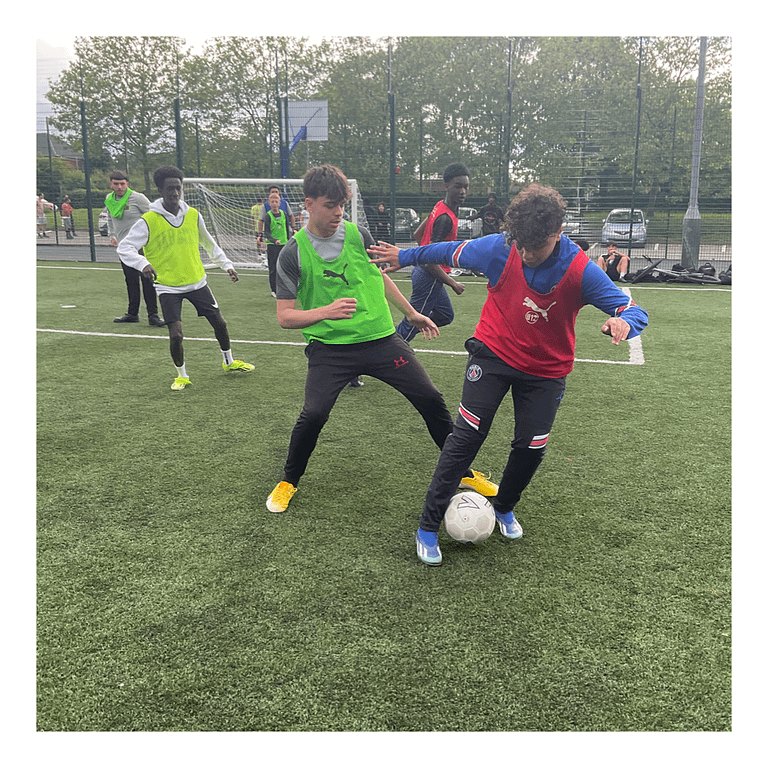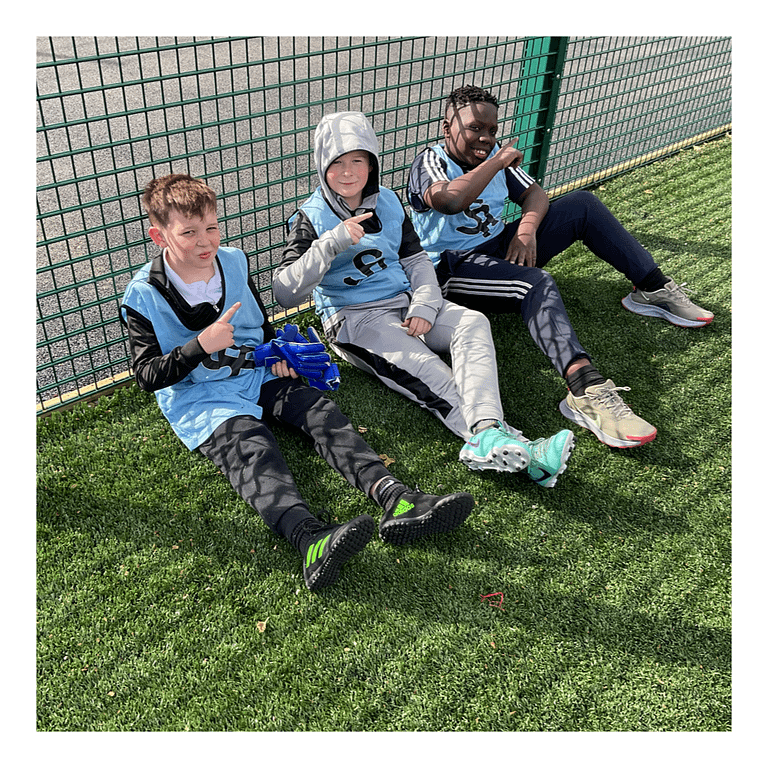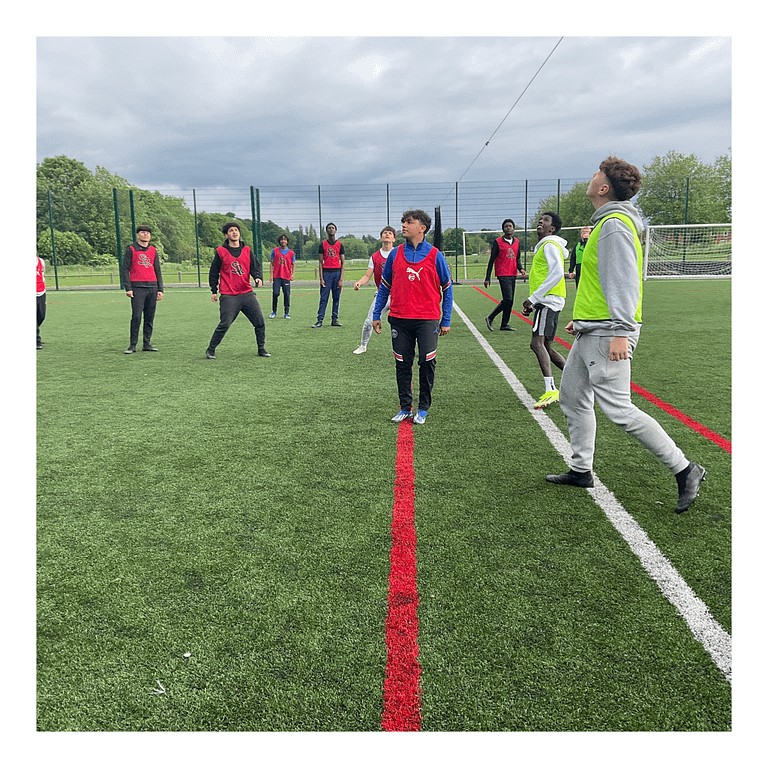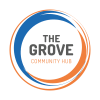+44 20 3036 2757 | CONTACT@SINCERESPONSE.COM
SUPPORT OUR YOUTH



Online youth mentoring programs offer several advantages alongside traditional in-person mentoring, making them a valuable tool for reaching and supporting young people. Here are some key benefits:
Increased Accessibility:
- Convenience: Online mentoring removes geographical barriers, allowing young people to connect with mentors anywhere in the world. This is especially beneficial for those in rural areas or with limited transportation options.
- Flexibility: Online platforms offer scheduling flexibility, making it easier for busy teens and mentors to connect outside of traditional work or school hours.
Tailored Matching:
- Wider Pool of Mentors: Online platforms can connect young people with a wider range of mentors who possess specific skills or experiences relevant to their needs and interests.
Enhanced Communication Options:
- Multiple Channels: Online programs can facilitate communication through various methods like video conferencing, instant messaging, or discussion boards, allowing for flexibility and comfort for both mentors and mentees.
- Asynchronous Communication: Online platforms often allow for asynchronous communication, enabling thoughtful responses and avoiding the pressure of immediate replies. This can be helpful for shy young people or those who need time to process information.
Additional Advantages:
- Cost-Effectiveness: Online programs can be less expensive to operate than traditional in-person models, potentially reaching more young people with limited resources.
- Resource Sharing: Online platforms can provide access to a wider range of resources and materials that mentors and mentees can utilize during their sessions.
- Program Monitoring: Some online platforms offer tools to track program activity and progress, allowing for better evaluation and adaptation of the mentoring experience.
It’s important to consider:
- Technology Access: Not all young people have reliable internet access or devices, so ensuring digital equity is crucial.
- Building Rapport: Establishing a strong connection online can require additional effort compared to face-to-face interactions.
- Safety and Security: Robust online safety measures are essential to protect young people and ensure a positive mentoring experience.
Overall, online youth mentoring programs offer a valuable and complementary option to traditional models. By leveraging technology to increase accessibility, flexibility, and reach, these programs can empower young people and connect them with the support they need to thrive.
Building a Safer UK: Strategies to Reduce Robbery Rates
Robbery is a serious crime, but the UK is taking a multi-pronged approach to make communities safer. Here’s how:
Safer Streets, Stronger Communities:
- Smart Design: “Secured by Design” principles are being incorporated into urban planning. This means better lighting, improved building security, and fewer hiding places for criminals, making public spaces less inviting for robbery.
- Empowering People: Public awareness campaigns educate people on how to stay safe. These campaigns focus on vigilance in public places, avoiding carrying large sums of cash, and securing homes and vehicles.
- Neighborhood Watch: Communities are encouraged to work together through Neighborhood Watch schemes. This builds a sense of solidarity and allows residents to look out for each other’s homes, report suspicious activity, and deter crime.
- Taking Down Repeat Offenders: Law enforcement prioritizes identifying and prosecuting repeat offenders. This disrupts criminal networks and sends a strong deterrent message.
Swift Response and Support:
- Rapid Response Teams: Dedicated police units are trained to react quickly to robbery reports, increasing the chance of catching perpetrators.
- Eyes on the Street: Strategic use of CCTV cameras in public spaces can help deter crime and provide valuable evidence for investigations, balancing security with privacy concerns.
- Supporting Victims: Robbery victims receive immediate emotional and practical support. This helps them cope with the trauma and navigate the legal process effectively.
Investing in the Future:
- Addressing Root Causes: The UK tackles social and economic factors that contribute to crime, such as poverty and lack of opportunity. This long-term approach can have a lasting impact on reducing robbery rates.
- Working Together: Effective communication and collaboration between police, social services, and community organizations is crucial. This holistic approach ensures everyone plays a part in keeping communities safe.
Data & Trust:
- Data-Driven Decisions: Crime data is continuously analyzed to inform prevention and response strategies. This ensures resources are targeted effectively.
- Building Bridges: Building trust and positive relationships between police and communities is fundamental for effective crime prevention.
By implementing these strategies, the UK can create a safer environment where everyone feels secure.
Building a Stronger Family Support Network in the UK
There’s no silver bullet, but a multi-pronged approach can create a thriving environment for families across the UK. Here’s how:
Strong Foundations from the Start:
- Early Intervention: Invest in programs like Sure Start Children’s Centres, offering crucial support, resources, and a sense of community for families with young children.
- Mental Health Matters: Improve access to mental health services for both parents and children. Addressing these issues strengthens family bonds and overall well-being.
- Financial Security: Policies promoting financial stability, like affordable childcare and a living wage, reduce stress and create a more supportive family atmosphere.
Strengthening Family Connections:
- Make Memories Together: Encourage initiatives that get families spending quality time together. This could include subsidized family memberships to museums, parks, or recreational facilities.
- Bridging the Generations: Programs connecting families across generations, like volunteering opportunities for grandparents and grandchildren, foster understanding and a sense of shared purpose.
- Work-Life Balance: Policies encouraging flexible work schedules or parental leave options can help parents better balance work and family life.
Supporting Diverse Families:
- Culturally Sensitive Support: Develop programs and resources tailored to the specific needs of families from different backgrounds.
- Empowering Single Parents: Provide targeted support services to address the unique challenges single parents face, empowering them to raise their children effectively.
- Strengthening Foster and Kinship Care: Invest in quality training and support for foster carers and relatives who provide care for children who cannot live with their biological parents.
Collaboration is Key:
- Public Awareness Campaigns: Highlight the importance of family support and the benefits of strong family bonds for individuals and society as a whole.
- Community Outreach: Collaborate with community centers, faith groups, and local businesses to create a network of family support.
- Breaking Down Silos: Encourage collaboration between social services, schools, and healthcare providers for a holistic approach to supporting families.
The Power of Technology:
- Digital Support: Utilize online resources, apps, and digital platforms to provide families with easily accessible information and support networks.
A Continuous Effort:
- Benefits for All: Promote the positive impact of strong family support on children’s development, adult well-being, and overall social cohesion.
- Adapting to Needs: Continuously evaluate the effectiveness of programs and adapt strategies based on data and feedback to ensure maximum impact.
By focusing on these areas, the UK can create a future where families of all shapes and sizes are empowered to thrive.
Sinceresponse is tackling youth involvement in drug dealing by offering a brighter future, not just chasing shadows. Here’s a breakdown:
Building a Better Path:
- Early Intervention: Social programs address the root causes like poverty, lack of opportunity, or exposure to violence, steering young people away from drug dealing.
- Smart Education: Tailored school and community programs inform young people about the legal and personal dangers of drug dealing, highlighting its negative impact on their future.
- Positive Alternatives: Providing access to after-school activities, sports clubs, youth centers, and mentorship programs provides a positive path and a sense of belonging.
- Open Communication: Building trust with high-risk communities allows for honest conversations about the dangers of drug dealing and offers alternative paths.
Helping Those Already Involved:
- Exit Strategies: Support networks and resources are available to help young people leave the drug trade. This includes counseling, job training, and educational opportunities.
- Fighting County Lines: Programs specifically target the exploitation of young people in these gangs. This involves police work, victim support, and disrupting criminal networks.
- Mental Health Matters: Recognizing the link between mental health and vulnerability, access to mental health support is being improved.
Additional Considerations:
- Empowering Parents: Programs equip parents to understand the risks and communicate effectively with their children about drugs.
- Mentorship Matters: Positive role models and strong mentorship programs offer guidance and support, fostering self-esteem and positive life choices.
- Social Media Savvy: Young people are educated about online grooming tactics used by gangs and the dangers of drug glorification on social media platforms.
Working Together for a Brighter Future:
Collaboration is key. Law enforcement, social services, schools, and communities must work together to tackle the issue effectively.
Long-Term Solutions:
Addressing the root causes of youth vulnerability is essential for creating lasting change. Breaking the cycle by supporting those already involved and offering them a way out is crucial for reducing drug dealing and its associated harms.
The UK’s Fight Against Knife and Gun Crime: A Multi-Pronged Approach
In the UK, tackling knife and gun crime is a multi-pronged effort that goes beyond just enforcement. A strong focus is placed on prevention and early intervention, aiming to address the root causes before violence erupts.
Building a Strong Foundation:
- Investing in Youth: Support and diversion programs offer guidance, mentorship, and opportunities for young people at risk. These programs tackle issues like social exclusion, lack of positive role models, and exposure to violence, helping them choose a different path.
- Education is Key: Schools play a crucial role by educating young people about the dangers of carrying weapons, the devastating consequences of violence, and valuable conflict resolution skills.
- Mental Health Matters: Recognizing the link between mental health and violence, the UK is expanding access to support services. This addresses underlying issues that can contribute to violent behavior.
- Community Matters: Building trust and cooperation between police and communities is critical. This allows for better information sharing, early intervention, and community-led initiatives to tackle crime at its source.
- Stricter Knife Controls: The UK has implemented tougher knife control laws, banning specific types of knives and increasing penalties for carrying them without a valid reason in public.
Enforcement and Intervention:
- Stop & Search with Safeguards: Police have the power to stop and search individuals suspected of carrying weapons. However, safeguards are in place to prevent racial profiling.
- Targeted Policing: Increased police presence and proactive efforts in high-crime areas aim to deter violence and improve community safety.
- Sentencing with Rehabilitation: While sentences for serious knife and gun crime can be severe, there’s also a focus on rehabilitation programs within prisons, offering a chance for reintegration into society.
- Victim Support: Support services for victims of knife and gun crime are readily available. This includes counseling, advocacy, and financial assistance to help them cope with the trauma and rebuild their lives.
Additional Measures:
- Serious Violence Duty: This new law places a responsibility on public sector organizations to collaborate and share information. The goal is to identify and address the root causes of serious violence before it occurs.
- Countering Violent Extremism: Programs exist to identify and support individuals at risk of radicalization, which can sometimes lead to violent acts.
It’s important to remember:
- The effectiveness of these strategies is constantly evaluated and debated. There’s no single solution, and a multi-pronged approach is necessary.
- Addressing the social and economic factors that contribute to violence, such as poverty and inequality, is also crucial in the fight against knife and gun crime.
Racism, the prejudice and discrimination directed at people based on their race or ethnicity, is a stain on our society. It has no place in a world that strives for equality and justice for all.
We believe in the inherent dignity and worth of every human being, regardless of skin color, background, or origin. Racism creates division, fear, and violence. It hinders progress and stifles potential.
We stand firmly against all forms of racism, both overt and covert. This includes:
- Individual acts of discrimination: Racial slurs, profiling, and unequal treatment based on race are unacceptable.
- Systemic racism: Policies and practices that disadvantage people of color in areas like housing, education, and criminal justice must be dismantled.
- Cultural insensitivity: Disrespecting or trivializing another culture is a form of racism.
We commit to:
- Speaking out against racism whenever we see or hear it.
- Educating ourselves about the history and ongoing effects of racism.
- Advocating for policies that promote racial equity and inclusion.
- Building bridges across racial divides through dialogue and understanding.
Together, we can create a world where everyone has the opportunity to thrive, regardless of race.
Discrimination, the unjust treatment or denial of opportunity based on a person’s identity, has no place in a just and equitable society. We believe in the inherent value of every individual, regardless of race, religion, gender, sexual orientation, disability, age, socioeconomic background, or any other factor.
Discrimination fosters division, undermines potential, and inflicts pain. It can manifest in various forms, including:
- Individual acts of bias: Prejudice, harassment, and unfair treatment based on personal characteristics.
- Systemic barriers: Policies and practices that disadvantage specific groups in areas like housing, employment, healthcare, and education.
- Unconscious bias: Implicit stereotypes that unknowingly influence decisions and interactions.
We stand firmly against all forms of discrimination and commit to:
- Promoting inclusion and diversity: Embracing differences strengthens our communities and fosters innovation.
- Educating ourselves and others: Understanding the roots and impact of discrimination empowers us to dismantle it.
- Advocating for change: Supporting laws and policies that ensure equal opportunity and dismantle discriminatory systems.
- Holding ourselves accountable: Reflecting on our own biases and creating spaces for open dialogue.
By working together, we can build a world where everyone has the chance to reach their full potential, free from discrimination.
MENTORING
Online youth mentoring programs offer several advantages alongside traditional in-person mentoring, making them a valuable tool for reaching and supporting young people. Here are some key benefits:
Increased Accessibility:
- Convenience: Online mentoring removes geographical barriers, allowing young people to connect with mentors anywhere in the world. This is especially beneficial for those in rural areas or with limited transportation options.
- Flexibility: Online platforms offer scheduling flexibility, making it easier for busy teens and mentors to connect outside of traditional work or school hours.
Tailored Matching:
- Wider Pool of Mentors: Online platforms can connect young people with a wider range of mentors who possess specific skills or experiences relevant to their needs and interests.
Enhanced Communication Options:
- Multiple Channels: Online programs can facilitate communication through various methods like video conferencing, instant messaging, or discussion boards, allowing for flexibility and comfort for both mentors and mentees.
- Asynchronous Communication: Online platforms often allow for asynchronous communication, enabling thoughtful responses and avoiding the pressure of immediate replies. This can be helpful for shy young people or those who need time to process information.
Additional Advantages:
- Cost-Effectiveness: Online programs can be less expensive to operate than traditional in-person models, potentially reaching more young people with limited resources.
- Resource Sharing: Online platforms can provide access to a wider range of resources and materials that mentors and mentees can utilize during their sessions.
- Program Monitoring: Some online platforms offer tools to track program activity and progress, allowing for better evaluation and adaptation of the mentoring experience.
It’s important to consider:
- Technology Access: Not all young people have reliable internet access or devices, so ensuring digital equity is crucial.
- Building Rapport: Establishing a strong connection online can require additional effort compared to face-to-face interactions.
- Safety and Security: Robust online safety measures are essential to protect young people and ensure a positive mentoring experience.
Overall, online youth mentoring programs offer a valuable and complementary option to traditional models. By leveraging technology to increase accessibility, flexibility, and reach, these programs can empower young people and connect them with the support they need to thrive.
RACISM
Online youth mentoring programs offer several advantages alongside traditional in-person mentoring, making them a valuable tool for reaching and supporting young people. Here are some key benefits:
Increased Accessibility:
- Convenience: Online mentoring removes geographical barriers, allowing young people to connect with mentors anywhere in the world. This is especially beneficial for those in rural areas or with limited transportation options.
- Flexibility: Online platforms offer scheduling flexibility, making it easier for busy teens and mentors to connect outside of traditional work or school hours.
Tailored Matching:
- Wider Pool of Mentors: Online platforms can connect young people with a wider range of mentors who possess specific skills or experiences relevant to their needs and interests.
Enhanced Communication Options:
- Multiple Channels: Online programs can facilitate communication through various methods like video conferencing, instant messaging, or discussion boards, allowing for flexibility and comfort for both mentors and mentees.
- Asynchronous Communication: Online platforms often allow for asynchronous communication, enabling thoughtful responses and avoiding the pressure of immediate replies. This can be helpful for shy young people or those who need time to process information.
Additional Advantages:
- Cost-Effectiveness: Online programs can be less expensive to operate than traditional in-person models, potentially reaching more young people with limited resources.
- Resource Sharing: Online platforms can provide access to a wider range of resources and materials that mentors and mentees can utilize during their sessions.
- Program Monitoring: Some online platforms offer tools to track program activity and progress, allowing for better evaluation and adaptation of the mentoring experience.
It’s important to consider:
- Technology Access: Not all young people have reliable internet access or devices, so ensuring digital equity is crucial.
- Building Rapport: Establishing a strong connection online can require additional effort compared to face-to-face interactions.
- Safety and Security: Robust online safety measures are essential to protect young people and ensure a positive mentoring experience.
Overall, online youth mentoring programs offer a valuable and complementary option to traditional models. By leveraging technology to increase accessibility, flexibility, and reach, these programs can empower young people and connect them with the support they need to thrive.
ROBBERY
Building a Safer UK: Strategies to Reduce Robbery Rates
Robbery is a serious crime, but the UK is taking a multi-pronged approach to make communities safer. Here’s how:
Safer Streets, Stronger Communities:
- Smart Design: “Secured by Design” principles are being incorporated into urban planning. This means better lighting, improved building security, and fewer hiding places for criminals, making public spaces less inviting for robbery.
- Empowering People: Public awareness campaigns educate people on how to stay safe. These campaigns focus on vigilance in public places, avoiding carrying large sums of cash, and securing homes and vehicles.
- Neighborhood Watch: Communities are encouraged to work together through Neighborhood Watch schemes. This builds a sense of solidarity and allows residents to look out for each other’s homes, report suspicious activity, and deter crime.
- Taking Down Repeat Offenders: Law enforcement prioritizes identifying and prosecuting repeat offenders. This disrupts criminal networks and sends a strong deterrent message.
Swift Response and Support:
- Rapid Response Teams: Dedicated police units are trained to react quickly to robbery reports, increasing the chance of catching perpetrators.
- Eyes on the Street: Strategic use of CCTV cameras in public spaces can help deter crime and provide valuable evidence for investigations, balancing security with privacy concerns.
- Supporting Victims: Robbery victims receive immediate emotional and practical support. This helps them cope with the trauma and navigate the legal process effectively.
Investing in the Future:
- Addressing Root Causes: The UK tackles social and economic factors that contribute to crime, such as poverty and lack of opportunity. This long-term approach can have a lasting impact on reducing robbery rates.
- Working Together: Effective communication and collaboration between police, social services, and community organizations is crucial. This holistic approach ensures everyone plays a part in keeping communities safe.
Data & Trust:
- Data-Driven Decisions: Crime data is continuously analyzed to inform prevention and response strategies. This ensures resources are targeted effectively.
- Building Bridges: Building trust and positive relationships between police and communities is fundamental for effective crime prevention.
By implementing these strategies, the UK can create a safer environment where everyone feels secure.
DRUG DEALING
Sinceresponse is tackling youth involvement in drug dealing by offering a brighter future, not just chasing shadows. Here’s a breakdown:
Building a Better Path:
- Early Intervention: Social programs address the root causes like poverty, lack of opportunity, or exposure to violence, steering young people away from drug dealing.
- Smart Education: Tailored school and community programs inform young people about the legal and personal dangers of drug dealing, highlighting its negative impact on their future.
- Positive Alternatives: Providing access to after-school activities, sports clubs, youth centers, and mentorship programs provides a positive path and a sense of belonging.
- Open Communication: Building trust with high-risk communities allows for honest conversations about the dangers of drug dealing and offers alternative paths.
Helping Those Already Involved:
- Exit Strategies: Support networks and resources are available to help young people leave the drug trade. This includes counseling, job training, and educational opportunities.
- Fighting County Lines: Programs specifically target the exploitation of young people in these gangs. This involves police work, victim support, and disrupting criminal networks.
- Mental Health Matters: Recognizing the link between mental health and vulnerability, access to mental health support is being improved.
Additional Considerations:
- Empowering Parents: Programs equip parents to understand the risks and communicate effectively with their children about drugs.
- Mentorship Matters: Positive role models and strong mentorship programs offer guidance and support, fostering self-esteem and positive life choices.
- Social Media Savvy: Young people are educated about online grooming tactics used by gangs and the dangers of drug glorification on social media platforms.
Working Together for a Brighter Future:
Collaboration is key. Law enforcement, social services, schools, and communities must work together to tackle the issue effectively.
Long-Term Solutions:
Addressing the root causes of youth vulnerability is essential for creating lasting change. Breaking the cycle by supporting those already involved and offering them a way out is crucial for reducing drug dealing and its associated harms.
FAMILY SUPPORT
Building a Stronger Family Support Network in the UK
There’s no silver bullet, but a multi-pronged approach can create a thriving environment for families across the UK. Here’s how:
Strong Foundations from the Start:
- Early Intervention: Invest in programs like Sure Start Children’s Centres, offering crucial support, resources, and a sense of community for families with young children.
- Mental Health Matters: Improve access to mental health services for both parents and children. Addressing these issues strengthens family bonds and overall well-being.
- Financial Security: Policies promoting financial stability, like affordable childcare and a living wage, reduce stress and create a more supportive family atmosphere.
Strengthening Family Connections:
- Make Memories Together: Encourage initiatives that get families spending quality time together. This could include subsidized family memberships to museums, parks, or recreational facilities.
- Bridging the Generations: Programs connecting families across generations, like volunteering opportunities for grandparents and grandchildren, foster understanding and a sense of shared purpose.
- Work-Life Balance: Policies encouraging flexible work schedules or parental leave options can help parents better balance work and family life.
Supporting Diverse Families:
- Culturally Sensitive Support: Develop programs and resources tailored to the specific needs of families from different backgrounds.
- Empowering Single Parents: Provide targeted support services to address the unique challenges single parents face, empowering them to raise their children effectively.
- Strengthening Foster and Kinship Care: Invest in quality training and support for foster carers and relatives who provide care for children who cannot live with their biological parents.
Collaboration is Key:
- Public Awareness Campaigns: Highlight the importance of family support and the benefits of strong family bonds for individuals and society as a whole.
- Community Outreach: Collaborate with community centers, faith groups, and local businesses to create a network of family support.
- Breaking Down Silos: Encourage collaboration between social services, schools, and healthcare providers for a holistic approach to supporting families.
The Power of Technology:
- Digital Support: Utilize online resources, apps, and digital platforms to provide families with easily accessible information and support networks.
A Continuous Effort:
- Benefits for All: Promote the positive impact of strong family support on children’s development, adult well-being, and overall social cohesion.
- Adapting to Needs: Continuously evaluate the effectiveness of programs and adapt strategies based on data and feedback to ensure maximum impact.
By focusing on these areas, the UK can create a future where families of all shapes and sizes are empowered to thrive.
KNIFE AND GUN CRIME
The UK’s Fight Against Knife and Gun Crime: A Multi-Pronged Approach
In the UK, tackling knife and gun crime is a multi-pronged effort that goes beyond just enforcement. A strong focus is placed on prevention and early intervention, aiming to address the root causes before violence erupts.
Building a Strong Foundation:
- Investing in Youth: Support and diversion programs offer guidance, mentorship, and opportunities for young people at risk. These programs tackle issues like social exclusion, lack of positive role models, and exposure to violence, helping them choose a different path.
- Education is Key: Schools play a crucial role by educating young people about the dangers of carrying weapons, the devastating consequences of violence, and valuable conflict resolution skills.
- Mental Health Matters: Recognizing the link between mental health and violence, the UK is expanding access to support services. This addresses underlying issues that can contribute to violent behavior.
- Community Matters: Building trust and cooperation between police and communities is critical. This allows for better information sharing, early intervention, and community-led initiatives to tackle crime at its source.
- Stricter Knife Controls: The UK has implemented tougher knife control laws, banning specific types of knives and increasing penalties for carrying them without a valid reason in public.
Enforcement and Intervention:
- Stop & Search with Safeguards: Police have the power to stop and search individuals suspected of carrying weapons. However, safeguards are in place to prevent racial profiling.
- Targeted Policing: Increased police presence and proactive efforts in high-crime areas aim to deter violence and improve community safety.
- Sentencing with Rehabilitation: While sentences for serious knife and gun crime can be severe, there’s also a focus on rehabilitation programs within prisons, offering a chance for reintegration into society.
- Victim Support: Support services for victims of knife and gun crime are readily available. This includes counseling, advocacy, and financial assistance to help them cope with the trauma and rebuild their lives.
Additional Measures:
- Serious Violence Duty: This new law places a responsibility on public sector organizations to collaborate and share information. The goal is to identify and address the root causes of serious violence before it occurs.
- Countering Violent Extremism: Programs exist to identify and support individuals at risk of radicalization, which can sometimes lead to violent acts.
It’s important to remember:
- The effectiveness of these strategies is constantly evaluated and debated. There’s no single solution, and a multi-pronged approach is necessary.
- Addressing the social and economic factors that contribute to violence, such as poverty and inequality, is also crucial in the fight against knife and gun crime.
PREJUDICE & DISCRIMINATION
Discrimination, the unjust treatment or denial of opportunity based on a person’s identity, has no place in a just and equitable society. We believe in the inherent value of every individual, regardless of race, religion, gender, sexual orientation, disability, age, socioeconomic background, or any other factor.
Discrimination fosters division, undermines potential, and inflicts pain. It can manifest in various forms, including:
- Individual acts of bias: Prejudice, harassment, and unfair treatment based on personal characteristics.
- Systemic barriers: Policies and practices that disadvantage specific groups in areas like housing, employment, healthcare, and education.
- Unconscious bias: Implicit stereotypes that unknowingly influence decisions and interactions.
We stand firmly against all forms of discrimination and commit to:
- Promoting inclusion and diversity: Embracing differences strengthens our communities and fosters innovation.
- Educating ourselves and others: Understanding the roots and impact of discrimination empowers us to dismantle it.
- Advocating for change: Supporting laws and policies that ensure equal opportunity and dismantle discriminatory systems.
- Holding ourselves accountable: Reflecting on our own biases and creating spaces for open dialogue.
By working together, we can build a world where everyone has the chance to reach their full potential, free from discrimination.
We are a non-profit organization dedicated to creating safer streets and communities by empowering young people. We believe that by offering opportunities and fostering positive development, we can deter them from crime and help them reach their full potential.










A very good idea for the young people x
SinceResponse is not only a community interest company, it is a home away from home! Providing a sense of belonging and opportunity for children to reach their highest potential.
I love the idea of this very much needed safe space, where our children can get mentored, play football or just hang out with other children their age.
This is evidently keeping them off the streets and taking them far away from crime.
This is the new Connexions❗️
I am at ease knowing that my son is in a safe, nurturing environment that promotes his physical health and wellbeing. My son now shows good conduct and discipline.
👏🏽 THANK YOU SR! It has been a huge benefit and help!👌🏽
SinceResponse is not only a community interest company, it is a home away from home! Providing a sense of belonging and opportunity for children to reach their highest potential.
I love the idea of this very much needed safe space, where our children can get mentored, play football or just hang out with other children their age.
This is evidently keeping them off the streets and taking them far away from crime.
This is the new Connexions❗️
I am at ease knowing that my son is in a safe, nurturing environment that promotes his physical health and wellbeing. My son now shows good conduct and discipline.
👏🏽 THANK YOU SR! It has been a huge benefit and help!👌🏽
